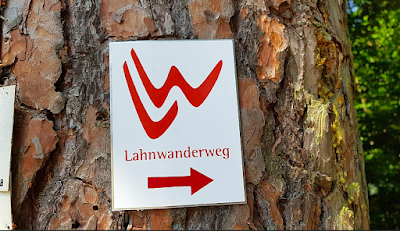As I mentioned in my previous post, Goethe’s autobiography is not the best place to look for the “facts” about his life or even the kinds of personal details that reveal a person’s character. His experiences are instead filtered via a larger portrait of the tendencies of the period in which he came of age and which, as he writes, offered little in the way of direction for young writers like himself. Books 12 and 13 are devoted to the three years when things started to fall into place for him and when he rather explosively appeared on the literary scene: 1772 to 1774. As I wrote in the last post, Darmstadt was the first important stage of this development. In the spring of 1772 in Darmstadt he became friends with Merck, who, like Behrisch in Leipzig, encouraged him and, equally important, brought him into contact with another literary current, Empfindsamkeit. Here is a report in a letter in the spring of 1772 to Herder from his fiancée Caroline Flachsland that gives an idea of Goethe at that time and of the mood. (Please go to Google translate and paste in.)
Wir waren alle Tage beisammen und sind in den Wald zusammengegangen und wurden auch zusammen durch und durch beregnet. Wir liefen alle unter einen Baum und Goethe sang uns ein Liedchen, das Sie aus dem Shakespear [As You Like It] übersetzt: ‘Wohl unter grünen Laubes Dach’ [Under the greenwood tree] und wir alle sangen den letzten Vers mit: ‘Nur eins, das heißt auch Wetter’ [No enemy/But winter and rough weather].
Caroline also reported that Goethe was reading to this circle of friends scenes from what would become “Gottfried von Berlichingen.”
The next stage was Wetzlar, where he spent the summer of 1772 and was befriended by Kestner and his then-fiancé Lotte Buff. I am going to skip over this stage until the next post. Sorry for the suspense, but Goethe himself leaves Wetzlar at the end of Book 12. It is September 1772, and neither the idea for Werther nor the theme of suicide has taken root. The next stage, as recounted in Book 13, begins with Goethe taking a long trip on foot along the Lahn River from Wetzlar to near Coblenz. (The image at the top of this post does not show Wetzlar, so I have added a star to indicate its approximate location on Goethe's path.) It is in Coblenz that he meets Sophie von la Roche and a new circle of literary people, mostly Catholic. Her novel in letters, The History of Fräulein von Sternheim (Geschichte des Fräuleins von Sternheim), appeared in 1771.
 |
| Maximiliane von la Roche with her mother and husband |
Are you getting the picture? Things are falling into place. Like The Sorrows of Young Werther, it is a novel in letters. Of course, it was not the first of its kind. Goethe was familiar with the epistolary novels of Rousseau and Richardson, but here he was meeting in person the first woman in Germany to pen such a novel. Unlike Werther, the story of Sophie von Sternheim is told from several different perspectives, more like in the later Liaisions Dangereux. Indeed, Sophie doesn’t appear until fifty pages in.
Sophie von la Roche had a teenage daughter of fifteen going on sixteen, Maximiliane by name, who would be married off within a year and half to a wealthy Frankfurt businessman, Peter Brentano, a 36-year-old widower with five children. The nature of the relationship between Max and Goethe is vague; that he was attracted to her, spent a lot of time with her, is not surprising, especially after her move to Frankfurt on her marriage in January 1774. The important thing in connection with The Sorrows of Young Werther is that she had dark brown eyes, like the Lotte of the novel, but unlike the real Lotte. Before her death in 1793, at the age of 36, Max bore twelve children, among whom were Bettina von Arnim and Clemens Brentano.
 Next time, the final building block of the composition of Werther, as recounted in Dichtung und Wahrheit. This is obviously more a story of the composition of the autobiography than of the specific literary merits of Goethe's first famous novel. And before signing off, a lovely photo from my lovely island retreat. I will be here until September, working away on Goethe and other literary projects.
Next time, the final building block of the composition of Werther, as recounted in Dichtung und Wahrheit. This is obviously more a story of the composition of the autobiography than of the specific literary merits of Goethe's first famous novel. And before signing off, a lovely photo from my lovely island retreat. I will be here until September, working away on Goethe and other literary projects.

Good stuff as always
ReplyDelete